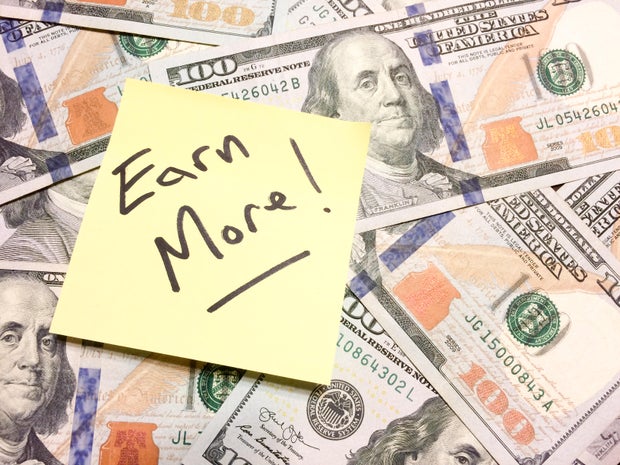 Making these simple but wise CD account moves could help you earn more this fall.
Steve Dunning/Getty Images
Making these simple but wise CD account moves could help you earn more this fall.
Steve Dunning/Getty Images
Certificate of deposit (CD) account rates may have peaked last year, but today's rates are still higher than historical averages. The question is where they'll go next.
With rising inflation, an uncertain economy and potential Federal Reserve rate cuts on the horizon, CD rates will likely be affected, and that means savers should make a plan now for how they'll respond.
So, should you open a new CD account now or wait a few months for higher rates? What other CD moves should you be eyeing as we head into fall? Here's what experts have to say.
Compare today's top CD account options and start earning more now.
4 smart CD moves to make this September, according to banking experts
Experts say to make these simple but smart moves now so you can maximize the returns on your CDs:
Lock in rates now before they can drop
The Federal Reserve is expected to cut the federal funds rate at its September meeting, and that would mean a drop in other interest rates, too.
As of early September, the CME Group's FedWatch Tool shows about a 90% chance of a rate cut this month. Should that happen, banks would likely follow suit on CD and other savings rates fairly quickly.
"It's expected that CD rates will come down by the end of the year," says Krisstin Petersmarck, founder at New Horizon Retirement Solutions. "The expected rate is about 25 basis points, with a possibility of 50 basis points by the end of the year."
For this reason, time is of the essence with CDs and other savings products, at least if you want to maximize the interest your money earns.
"With rates expected to decline, delaying could mean missing out on better returns," says Gina Seibert, chief financial officer of PSECU.
Learn how much you could earn by locking in a rate on the right CD account today.
Consider no penalty CDs
You might also want to consider a no-penalty CD this fall. While traditional CDs come with early withdrawal penalties if you dip into your cash before maturity, no-penalty options give you the flexibility to pull out money when needed with no extra fee.
The tradeoff is that no-penalty CDs come with lower rates than traditional CD products — typically between 0.25% and 0.50%, experts say.
"How much lower depends on the needs and risk/reward mindset of the financial institution," says Jen Leisey, product manager of consumer loans at Georgia's Own Credit Union.
Still, the tradeoff may be worth it, especially with inflation and consumer prices rising. In this scenario, the no-penalty CD would let you lock in a fairly high rate — at least higher than we'll likely see a few months from now — while also giving you access to cash when you need it.
"For someone who wants to earn more than a savings account offers, but may need access to funds sooner than expected, a no-penalty CD may be worth a slightly lower rate," says Shana Hennigan, chief business officer at savings marketplace Raisin. "It's especially useful in uncertain financial situations — job transitions, large upcoming expenses, or if you think rates may rise and want to move your money later to a higher-rate opportunity."
Avoid locking up too much money
It can also be important to avoid CD deposits that are too large these days — particularly in longer-term CDs, as they can make it hard to weather high inflation costs or any financial storms that might come down the road.
"One common mistake is locking up more money than you can afford to keep untouched," Hennigan says. "Inflation has ticked up slightly this summer, and everyday costs are still high in many parts of the country. Tying up too much cash in long-term CDs without penalty-free access can strain your liquidity."
According to Petersmarck, you should always have a solid emergency fund before putting money in a CD, which should hold at least three to six months' of income, depending on your risk appetite.
Another way to ease your risk is to spread your funds across a mix of CD terms, also called CD laddering, so that you always have access to your cash.
"A CD ladder is a smart strategy right now," Seibert says. "It involves opening multiple CDs with staggered maturity dates, giving you access to your money as each one matures. A ladder helps protect you if rates fall, but also provides flexibility if rates rise again. With rates still relatively high, this approach lets you lock in strong returns while staying adaptable to market shifts."
Weigh other banks and savings products
Finally, make sure you're looking at a variety of financial institutions when considering a CD this fall. Experts say some banks have already started lowering rates in anticipation of the Fed's upcoming meeting, and the size of those reductions can vary. Banks will likely reduce rates even more once the Fed's rate cut goes through.
"A common mistake consumers make with CDs is not shopping around for the best rates," says Mary Grace Roske, vice president of communications at CD Valet. "Many settle for what their primary bank offers, unaware that better options are often available online."
Be sure to check banks, credit unions, online lenders, and comparison marketplaces, too. You can also talk to your main bank, as they may offer incentives for being a loyal customer.
Just make sure you look beyond the rate and consider other factors as well — things like terms, fees, and more.
"Some consumers go for the absolute highest APY without thinking about the bank's terms, withdrawal penalties, or FDIC insurance," Hennigan says. These can all impact your risks as a saver, as well as your ability to access your money when you need it.
The bottom line
With CD rates still above historical averages but expected to fall later this year, now is the time to make a plan. Whether that means locking in a traditional CD before rates drop, opting for a no-penalty CD to maintain flexibility or building a CD ladder to balance access and returns, the key is aligning your strategy with your financial needs and risk tolerance.
Don't forget to shop around: rates, terms and fees vary widely across banks, credit unions and online platforms. By staying informed and strategic, you can make your money work harder while keeping your options open for whatever changes the economy and the Fed may bring this fall.
Aly J. Yale is a contributing writer for the Managing Your Money section for CBSNews.com, covering various personal finance topics, including investing, homebuying, loans and more.


















































